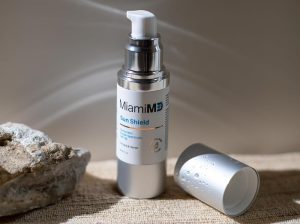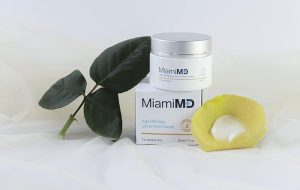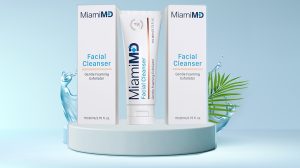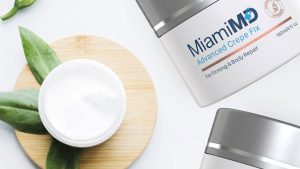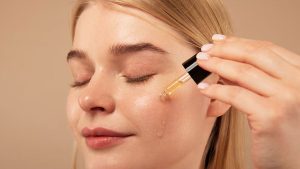What is an Anti-Aging Skincare Routine?
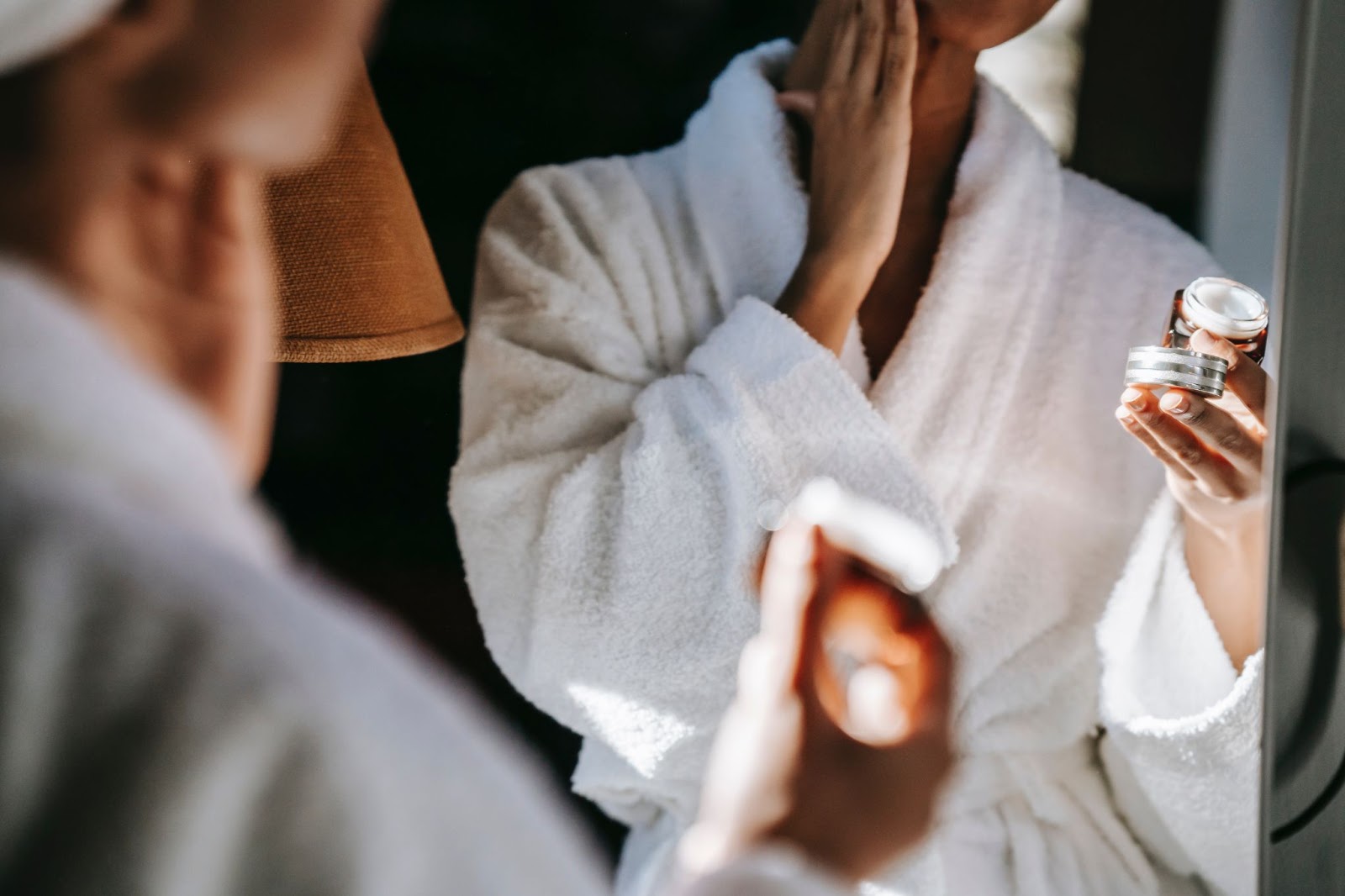
As you age, your skin is often the first part of your body to show signs of aging. Because your skin is constantly exposed to the elements, premature signs of aging can start to appear as early as your 20s. Therefore, it’s never too early to start thinking about how to develop an anti-aging skincare routine. Because the skincare needs of mature skin differ from those of younger skin, it is essential to choose products specially designed for aging skin.
Choose a Gentle Cleanser
No matter how old you are, washing your face regularly is an important part of any skincare routine. However, cleaning your skin regularly is even more important as you age, as accumulated skincare products, makeup, pollutants, and bacteria can dry out or damage your skin and accelerate the aging process. In addition, when the surface of your skin is clean and clear, your skincare products will also work more effectively, as they can reach your skin more quickly.
However, not all cleansers are created equally. While it can be tempting to use a harsh cleanser, particularly if you have naturally oily skin, harsher cleansers only serve to dry out your skin and upset your skin’s natural moisture balance, contributing to damage. Look for products that have a neutral pH and are marketed as gentle for sensitive skin. You’ll want to avoid products that contain sodium lauryl sulfate, salicylic acid, and other acids, as these are more likely to dry out your skin and cause further signs of aging.
Exfoliate Regularly
When we are young, our skin naturally regenerates itself and replenishes after sloughing off dead skin cells. This constant refreshing process means that your skin looks bright and even most of the time. However, as we age, the skin’s regeneration process naturally slows down. As a result, your skin starts to replace dead skin cells more slowly, contributing to a dull, uneven, cracked look. Exfoliants can help your skin cells replenish more quickly by removing dead skin cells and bringing new skin to the surface. It’s recommended that you exfoliate once or twice a week to keep your skin looking bright and fresh.
There are two main types of exfoliants, including physical exfoliants and chemical exfoliants. Physical exfoliants are scrubs, cleansers, or tools with a rough surface or texture and are used to scrub dead skin cells away. While you might think choosing a harsh scrub with large granules, such as a sugar scrub, is the best option, these harsh exfoliants can cause your skin to sag further. Instead, use a washcloth or soft sponge with a gentle cleanser.
Chemical exfoliants may sound harsh, but they are an option for the skin of all ages. They work by breaking the bonds between the skin cells, allowing them to detach from the surface and wash away. Look for chemical exfoliants that contain alpha-hydroxy acids (AHAs), which are known to be best for mature skin.
Use an Anti-Aging Serum
Anti-aging serums are top-rated right now, and with good reason. Serums are highly concentrated formulas that contain active ingredients like vitamin A, vitamin C, and vitamin E, all of which are known to help protect your skin against environmental damage and contribute to a more youthful appearance by boosting the levels of collagen in the skin. While some serums can be pricey, there are also plenty of affordable options. Serums should be applied after you cleanse your skin but before applying your moisturizer to work most effectively.
Keep Your Skin Moisturized
Although dry skin can happen at any age, it is very common for your skin to dry out even more as you get older. That’s because your skin starts to produce less oil, also known as sebum, as you age. While you’re less likely to experience a breakout with drier skin, dryness magnifies the appearance of fine lines and wrinkles, which can make you look older quickly. When your skin is properly moisturized, it plumps up and minimizes the appearance of fine lines and wrinkles.
Aging skin requires an appropriately robust moisturizer to stay hydrated. You’ll want to look for an anti-aging moisturizer that contains ingredients like glycerine and hyaluronic acid, which boost moisture content in the skin. You may need a heavier oil-based moisturizer to keep up with your skin’s hydration needs, but this isn’t always a practical solution during the daytime. If you find that your skin looks greasy with a heavy moisturizer, use a lighter moisturizer during the day and then use a heavier product at night. You can also add a layer of a product containing petrolatum jelly, such as Vaseline or Aquaphor, on top of your moisturizer to seal the moisturizer into your skin and prevent it from evaporating at night.
Protect Your Skin from Further Damage
Ask any dermatologist, and you’re likely to hear that the best way to prevent your skin from aging prematurely is to protect it from sun damage. While removing existing sun damage is possible, it requires laser treatments and similar procedures, so your best bet is to focus on preventing additional damage from occurring by regularly applying sunscreen.
Photoaging, the process by which sun damage causes signs of aging in the skin, is the number one cause of premature aging. The sun damages your skin in two major ways: by breaking down existing collagen, causing thinner skin and wrinkles to appear, and by causing areas of uneven pigment, commonly referred to as sunspots, to occur.
Your skin can also show signs of aging due to damage from sources other than the sun. Because older skin is thinner and more fragile, it is more likely to damage behaviors as common as sleeping. For example, believe it or not, sleeping on your side or stomach can cause your skin to become more wrinkled as it is pressed into the pillow, forming permanent lines known as sleep wrinkles.
To protect your skin from aging further, you need to take preventative action every day. The first and most important step is to apply a broad-spectrum sunscreen with a sun protection factor (SPF) of at least 30. Sunscreen should be applied every morning and then reapplied every two hours throughout the day.
Even if you don’t think you spend much time in the sun, you’d be surprised how quickly sun damage can accumulate on your commute while running errands or taking the kids to soccer practice. If you’re concerned about adding another step to your skincare routine, consider using a moisturizer that also contains sunscreen.
While sunscreen won’t help prevent damage to your skin that can occur due to your preferred sleep position or exposure to environmental toxins, it’s essential to take care of your skin and protect it from trauma as you age. Special anti-aging pillows may help to prevent sleep wrinkles, and silk pillowcases can also help.
Live a Healthy Lifestyle
The appearance of your skin primarily reflects your overall lifestyle and habits, which is why it is important to live a healthy lifestyle as part of any anti-aging skincare routine. To help hydrate your skin from the inside out, make sure to drink plenty of water every day and try to steer clear of excess alcohol, which can contribute to premature aging. Eating a healthy, well-balanced diet rich in fruits, vegetables, and lean protein sources will ensure that your skin has access to the vitamins, minerals, and antioxidants it needs to prevent signs of aging caused by free radicals, a natural byproduct of the body’s cellular processes.
If you smoke or use other tobacco products, it’s time to quit. Smoking dramatically accelerates the aging process, causing fine lines and wrinkles to form around the mouth prematurely, staining the teeth and skin, and contributing to free radical damage. Maintaining a healthy weight and getting regular exercise can also help to minimize the appearance of aging, as building muscle mass helps your skin to retain elasticity and prevents premature drooping and sagging. Overall, the best way to prevent your skin from aging prematurely is to treat your body with respect and live a healthy lifestyle.
Summary
There are six primary components of an anti-aging skincare routine: regular use of a gentle cleanser, exfoliating regularly, using an anti-aging serum, keeping your skin moisturized, protecting your skin from further damage, and living a healthy lifestyle. Your skin may start showing signs of aging as early as your 20s due to decreasing collagen production and sun damage, so it’s never too early to start using anti-aging products.
Sources:
The Influence of The Sleeping On The Formation Of Facial Wrinkles | DOI.org
